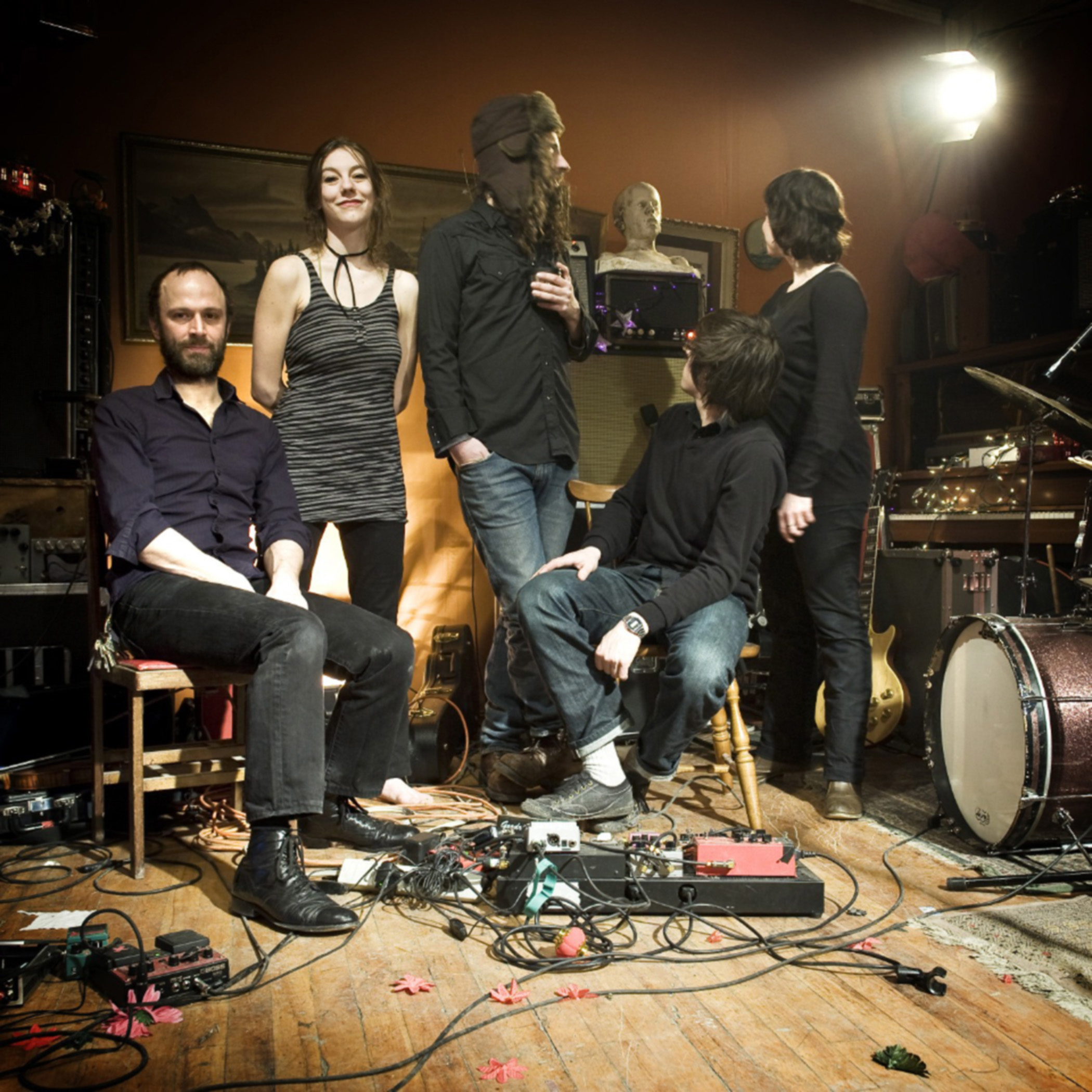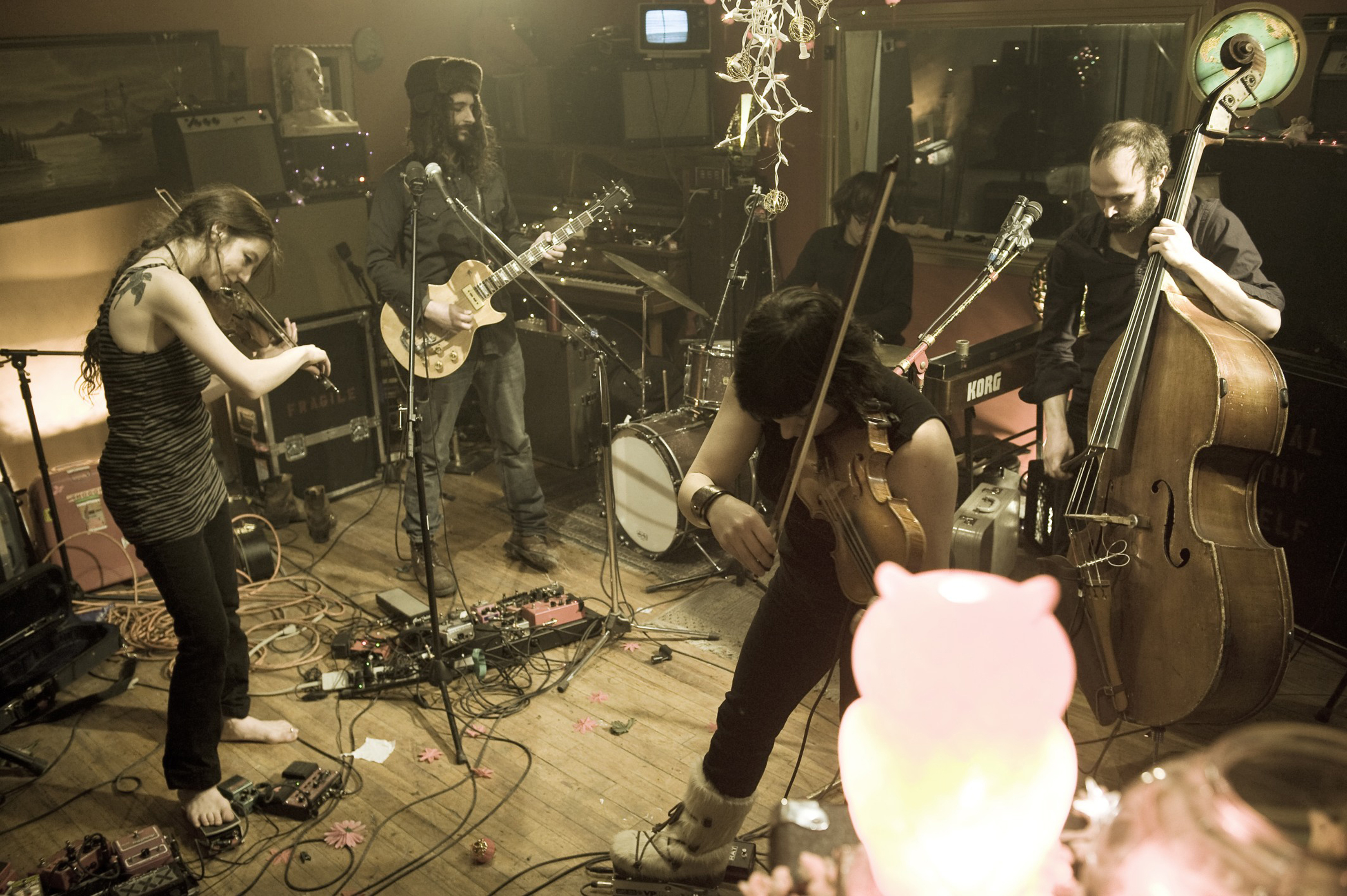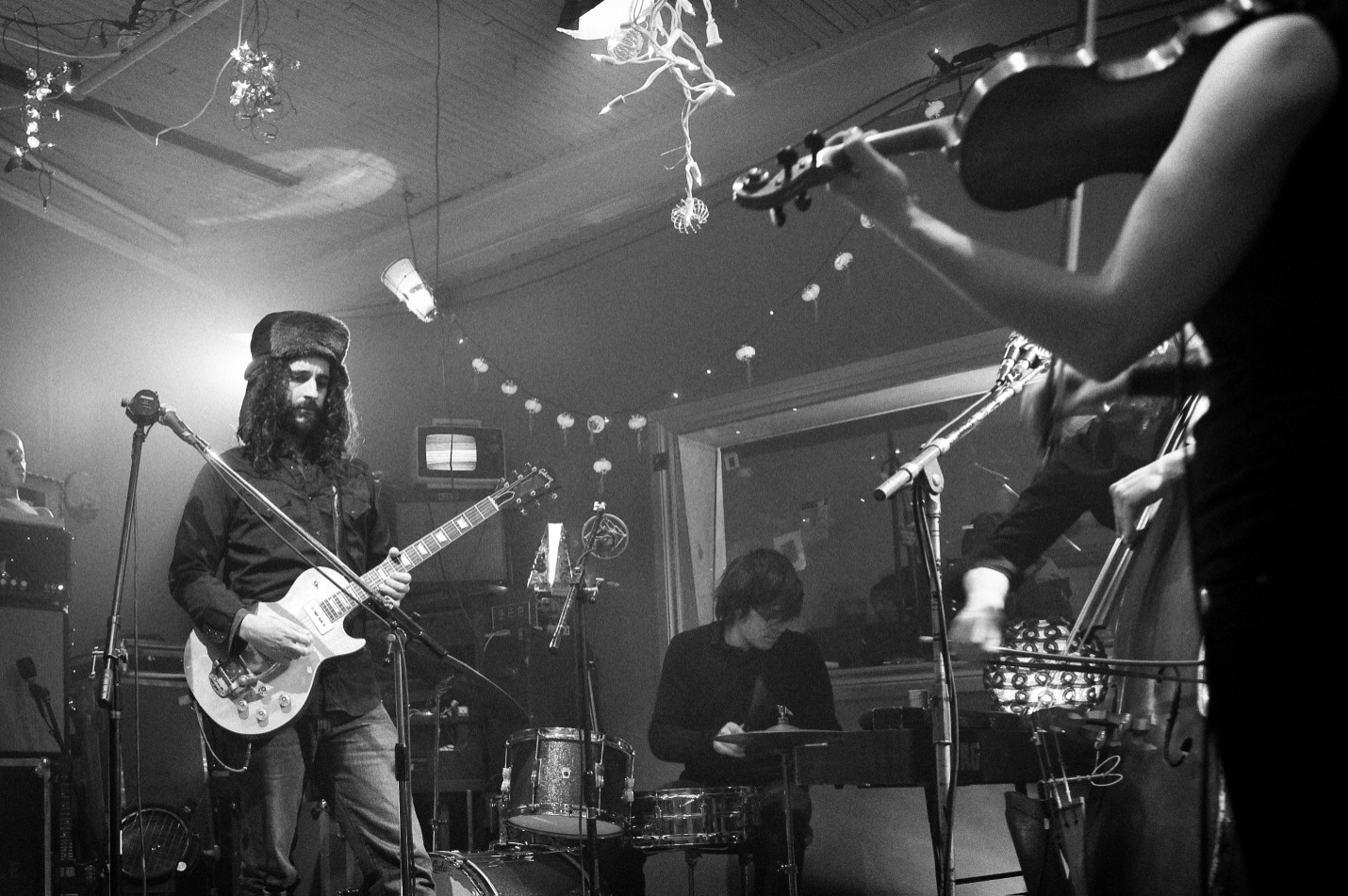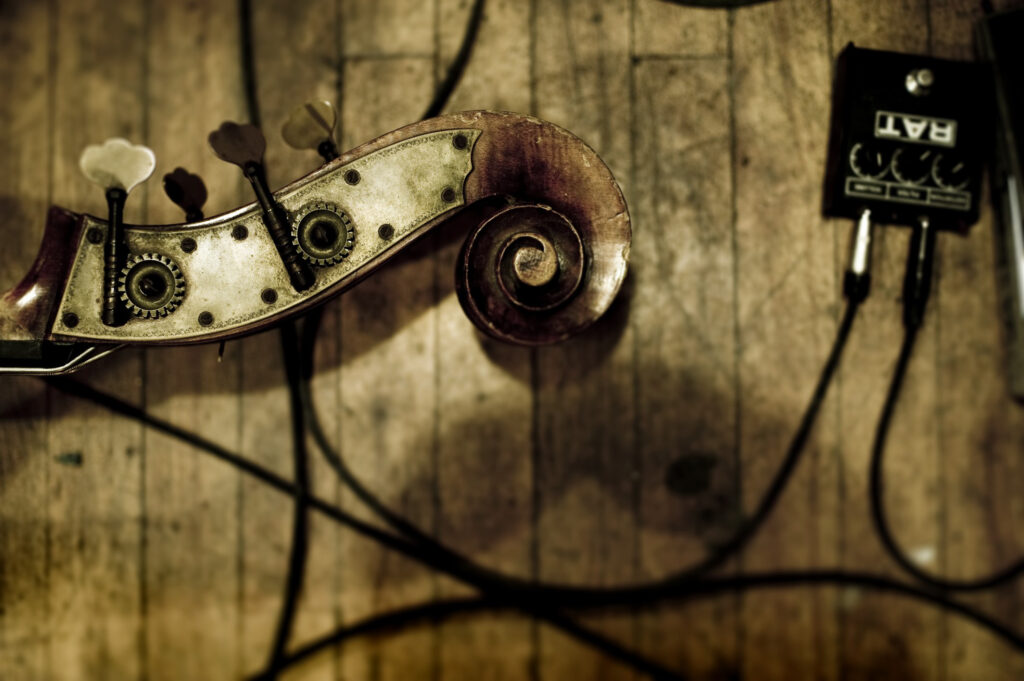Some events in life change a person. Births, deaths and the like are what reduce us to our basest levels, what make us all the same underneath and all that. But can these events change the way you think about the world around you? Can the person who it affects ever look on the things they once cared so deeply about – art, music, politics – in the same way?
Efrim Menuck, stalwart of the Montreal alternative scene (say “post-rock” within a five-foot radius and prepare for a beat-down), has been the focal point of Thee Silver Mt. Zion Memorial Orchestra since its beginnings in the early 00s. With their new record, they explore a whole bunch of stuff about how everything’s bad but ultimately some things are just great. Right? But that’s not really the point. Menuck’s outlook has always (at least in interviews) been one of disgust at a plethora of subjects. The music industry, political constructs and people drawn to vacuousness (music journalists included and sometimes targeted). So, having had a son in the last 6 months, something that could warp most men into new ways of thinking, have his views lessened in their severity, or is he as vocal as ever?
On a buzzy phone line to Canada, we have words with a bed-ridden Efrim Menuck who seemingly has changed… in some ways, at least.
If we could start where the last album finishes, you could argue that the climax of 13 Blues For 13 Moons is anthemic, even hopeful. Do the positive vibes carry on to the beginning of Kollapse Traxionales?
Efrim Menuck: Yes. Generally, we’d argue that 90% of the songs we’ve ever written end optimistically. They start at a point of confusion or loss or upset, and try to trace a line to a hopeful outcome. So the first song on the new record is wrestling with depression or helplessness.
There was an emphasis on that last record on communal singing – does that still exist?
EM: Uhm, there’s less group singing on the new record because there are a couple less band members. When we sing together we don’t make quite such a large noise as we once did. So we still sing together, just not as loud.
So what does the word ‘community’ mean to you?
EM: I don’t know man. On a basic level, you’re lucky if you have one. For me, community is anything from the neighbourhood I’m living in right now, my neighbours, the lady who I buy groceries from in the morning, or on a broader level it’s the people I work with, my family, my friends. It’s the idea I think, when we’ve talked about community in the past it’s been in the context of Montreal. Sort of like…we lived here, there’s a history of people coming here to do something other than work a day job. A large community of people would pass through Montreal looking for something to do with their lives. I guess at some point a group of us decided, “well fuck it, we’re going to try to stay here and put roots down here.” I guess we’ve always been referencing that junction point, that idea that we’re actually going to try and stand our ground in this town. I don’t expect that that would be interesting to anyone outside Montreal.
What kind of collapse does Kollapse Tradixionales describe?
EM: It’s referencing the economic collapse that happened over the course of the last year. It’s referencing the fact that this record was mostly written after that collapse happened. The traditionals part is, in this moment and instant, our reaction as a band to the economic collapse. The misery and the entire feeling behind it. Our reaction is to go back to a place of smaller songs, traditionals. What for us are traditionals. Or striving to be traditionals.
So what is a traditional to you?
EM: Well, I hate the term “folk music”, but if you listen to old, old, old records, you have people writing songs about misery or upset or gain or loss, and trying to transcend that state, or personalise that state, and that’s the thing we’ve always loved about music. It’s something we always try to do. One of the few noble things about this miserable trade is that tendency. So in our own stubborn way, we try to do that as well.
Do you feel as though you’re gaining popularity?
EM: No, the opposite. Especially in our own country and our own continent, we’re pretty much invisible. We have fans, we’re lucky, we earn a living, we mostly earn a living by staying on the road. Our star has never burned brightly ever in the history of the band. Actually, let me retrace a bit. You have to forgive me, I’m actually bed-ridden with pneumonia. So straight up, don’t be shy in reeling me back in. Anyways, we’ve always kind of existed outside of any concerted…critical praise or meaningful attention, and we’re happy with that and we’re OK with that. But no, the trajectory of this band has not been an upward arc of increasing exposure. In the last year, it’s been exactly the opposite, less exposure.

Does that follow into ticket sales and album sales?
EM: Not in ticket sales, but I think everyone lost album sales, not just us. We’ve always had an antagonistic relationship with a lot of people who write about music, and I don’t know why that is. I know that part of it is that we’re not afraid to mouth off if someone says something offensive about us. Although we don’t write letters or anything. I don’t know why it is we’ve always had this antagonistic relationship. You’ll see when this record comes out the same, mostly negative reviews. Most reviews will start with the same boring story which is like, start by identifying us as a post-rock band, and so I’ll reject it. Immediately they’ll talk about how post-rock is not a valid or interesting genre of music, why are we trying to continue and doing this, and they’ll somehow get a couple jabs in about how negative and defeatist we are, and they’ll give the record a 7.1 or something. It’s always been that way. Nothing we do has ever been successful in changing that perception. Although, the actual people who come to our shows and do buy our records, they don’t seem to have a hard time understanding what we’re about. I don’t know, it’s a strange thing.
Are you coming around to the idea that digital music is the dominant way that people get hold of records?
EM: Well, yeah, am I coming around to it? It’s a fact. The music industry as we’ve known it is going to die.
You’ve mentioned in the past that this digital revolution is a transient thing – do you still believe that?
EM: Um, yeah, absolutely. Since doing interviews for the last record, vinyl sales have gone through an increase. People need objects. On a human level, people like having things in their hands. Yeah, I still believe that. But what you say about digital music being predominant, I think you’re referring to broader changes in music. Everything is now free. That’s the bold new future.
Parts of your new record have already leaked. How do you feel about that?
EM: I don’t know, it seems like a silly thing to have an opinion about. I mean, what would you do about it. As soon as the CD goes out, someone burns it and it replicates from there. I think it is what it is. I’m disheartened by this whole new future we were supposed to be entering where everything’s filed and ready for whatever digital device you have. I still don’t understand how that’s supposed to lead to a vital and engaged culture of music. I guess what it has done is lead to a more monochromatic culture, and that’s never good. I think it would be a terrible musical culture that, that only involved bands like us, that would also be terrible. You need a broad spectrum of bands. And people, not just fans of music, are getting pushed out of that whole marketplace. I think that’s a sad thing.

Do you have any particular memories of Vic Chesnutt? Are they mostly musical or personal?
EM: I have many memories of Vic Chesnutt. I don’t know where I would begin. I remember the person. I remember the person who was my friend, who’s no longer here.
You’ve recently become a father – how has that changed things in a practical sense?
EM: It’s made it more complicated. Me and Jessica, who’s one of the two violin players in Mt. Zion, have had this child, so now we’ll be touring with a baby. On a practical level, for the first time ever we’ll be touring in a tour bus, because we need a safe haven to cart this infant around in. We can’t be in the same old filthy van and the normal sixteen-hour drives that we do. So on a practical level it complicates things, but I’m eager to see what it actually feels like once we’re on the road. I’m excited for him to get the opportunity to see the world, be exposed to people at such a young age. So existentially it’s been heavy. It’s a big transition. It’s a big thing to wrap your head around.
Please take this in its simplest sense, but how has it changed your view of humanity?
EM: It’s changed it in a sense that you have to be 100% on the side of humanity. There’s no fall-back position when you’re having a particularly bad day or a particularly despairing day. I feel like in the past if I had a really bad day I could just fall back into “well, I’m just a piece of shit anyway, if I die tomorrow I die tomorrow,” y’know what I mean? Obviously we can’t do that. So I mean my first instinct, right before my son was born and right after he was born was to stare things directly in the face and do as much reading as I could about subjects that terrified me.
To get it out of your system, in a way?
EM: Well, just to be able to look reality straight in the face. To not feel afraid. So yeah, that was heavy. And it continues to be heavy. The world is in a terrible state, and the future is not so bright. I continue to have a profound faith in people. I have a profound faith in the ability of people to do good things, make good decisions in terrible circumstances.
Is it your instinct to try and shield your son from all those terrible circumstances?
EM: No, right now I feel like the opposite. I want him to understand what’s going on in the world. He is five months old right now, so I have exactly five months’ experience of parenting, so anything I say right now should be taken with a grain of salt. But I want him to know what the world is really like. I want him to be able to function with that knowledge.
Again, I’d like you to take this question at face value – can music ever change the world?
EM: Not on its own. Never. I don’t think it ever has happened, and I don’t think it ever will happen. Music is part of one set of condition. People change the world. Situations change the world. Catastrophes change the world. Calamities change the world. Music doesn’t change the world. All music does is sustain…cradles the flame. I think its primary task is to just continue an infinite chain. So no, I don’t have any high-fallutin’ ideas about music and change. I never have. I think music has the power to change individuals. There’s definitely been bands in my life when I was younger who definitely changed me. On that level, it changed me. It can change individuals, but not the world.

Are you feeling positive about the new decade?
EM: No. No more positive than I was feeling at the beginning of the last decade. I mean less positive. There doesn’t feel a whole lot to be positive about. There’s nothing to suggest that there’s gonna be a spontaneous movement towards more goodness in people’s lives.
Next week on The Quietus: The Premiere Of The First Official Video From Thee Silver Mt. Zion Memorial Orchestra…


